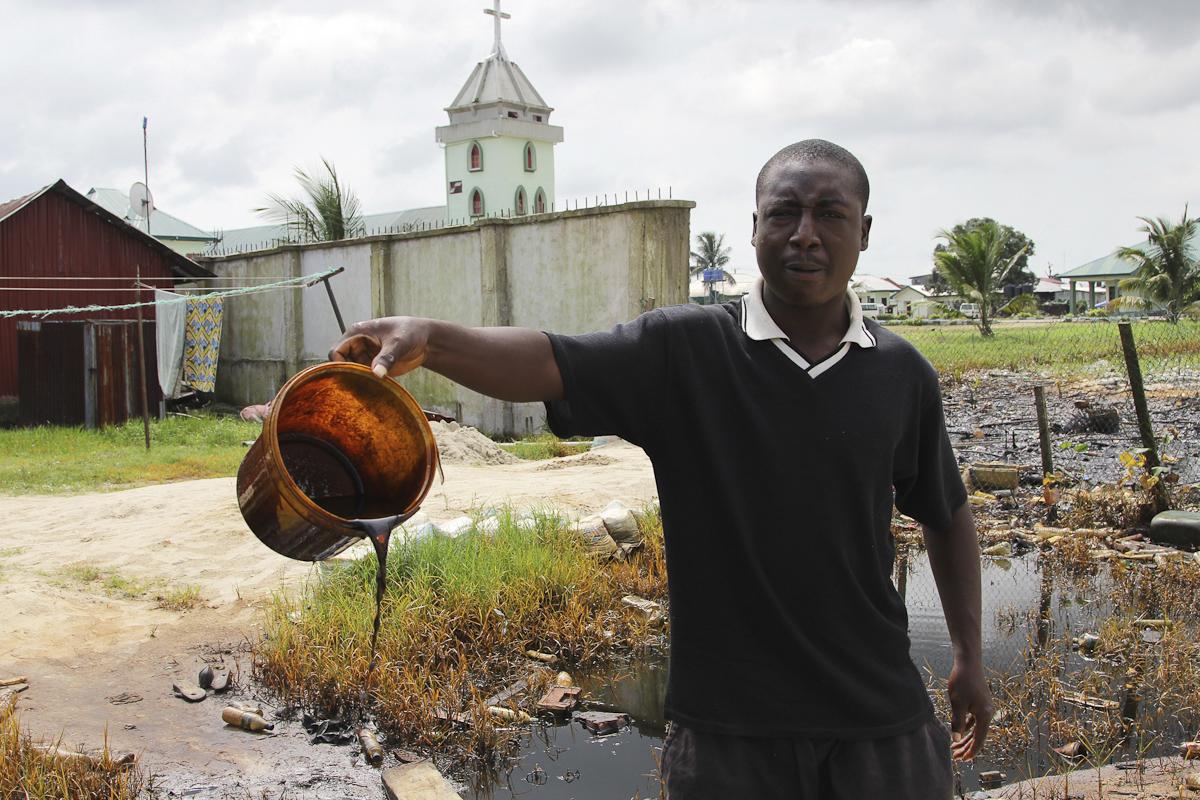Amnesty International accuses Shell and Eni of 'serious negligence' on Nigerian oil spill
Charity accuses oil giants of 'taking weeks to respond to reports of spills and publishing misleading information'

Amnesty International on Friday accused international oil giants Shell and Eni of negligence when addressing spills in Nigeria.
Describing their actions as “serious negligence”, Amnesty said the companies were “taking weeks to respond to reports of spills and publishing misleading information about the cause and severity of spills, which may result in communities not receiving compensation”.
A Shell spokesman said Amnesty’s allegations “are false, without merit and fail to recognise the complex environment in which the company operates”. ENI declined immediate comment.
Shell and Eni have for decades been two of the most active oil majors operating in the Niger Delta region.
Nigeria’s crude-producing heartland is an ecological disaster zone, scarred by decades of spills that have killed trees and other plants.
Yet clean-ups, and the associated compensation, are highly contentious, with some local communities even blocking teams’ access to spill sites, allowing the damage to worsen, in the hope of extracting a bigger pay-out.
Under Nigerian law, companies must visit sites within 24 hours of reporting a spill. Amnesty said that in one case Italian Eni took more than a year to respond to a spill in Bayelsa state.
While oil companies frequently attribute spills to sabotage and theft, locals say they are often due to other issues such as corrosion.
Shell has reported 1,010 spills since 2011, and Eni 820 since 2014, according to Amnesty, which said among those 1,830 reports it found 89 “about which there are reasonable doubts surrounding the cause provided by the oil companies”.
In 2015, the Bodo community and a UK law firm negotiated a £55m pollution settlement with Shell in 2015.
The Natural Resource Governance Institute, a non-profit group that advises countries on how to manage oil, gas and mineral resources, acknowledged there were sometimes difficulties on both sides.
“There’s no good guy here, everybody’s kind of bad. I’m sure the companies don’t do all that they can to get to these places. But then they also have genuine grievances and genuine difficulties dealing with these communities,” said Aaron Sayne, from the institute.
“When spills become an opportunity to make money, your clean-up becomes really tough.”
Reuters
Subscribe to Independent Premium to bookmark this article
Want to bookmark your favourite articles and stories to read or reference later? Start your Independent Premium subscription today.

Join our commenting forum
Join thought-provoking conversations, follow other Independent readers and see their replies